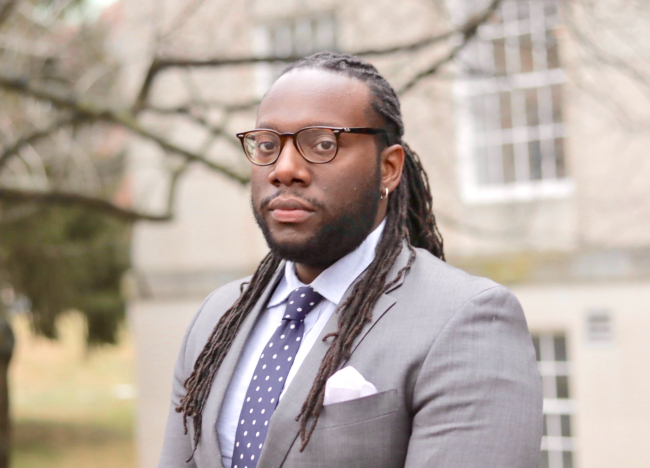
Although it has become synonymous with the United States Supreme Court case Brown vs. the Board of Education, which deemed racial segregation in public schools unconstitutional, the phrase “with all deliberate speed” characterizes the entire civil rights movement.
On May 12, 1958, prior to receiving a special citation for his actions at Little Rock Central High School in Arkansas, President Dwight Eisenhower attended a meeting of the nation’s Black leaders, where his remarks included an appeal for “patience and forbearance.” It was a tired message for everyone in the room, including former professional baseball player Jackie Robinson.
Robinson, then vice president of personnel at Chock Full O’Nuts, wrote Eisenhower a letter that tactfully says, “You can’t be serious.” He writes, “When you said we must have self-respect, I wondered how we could have self-respect and remain patient considering the treatment accorded us through the years.”
Over and over, civil rights activism was met with admonishment for its impatience. Julius B. Fleming Jr., an associate professor of English at the University of Maryland, College Park, shines a light on the Black community’s refusal to wait in his book Black Patience: Performance, Civil Rights, and the Unfinished Project of Emancipation.
The ‘show’ must not go on
Black Patience highlights how Black artists and activists used theater to expose, critique, and repurpose structures of white supremacy through the largely unexplored transnational archive of Black theater. A scholar of Black literature and performance studies, Fleming contends that Black performance not only demonstrated a radical unwillingness to “go slow,” but that it was also vital to civil rights activism.
Fleming’s book has received praise for being beautifully written and meticulously researched. Soyica Diggs Colbert, the Idol Family Professor of African American Studies and Performing Arts at Georgetown, says Black Patience offers “crucial insight into debates about political action” and a “powerful addition to the history of and critical understanding of the civil rights movement.”
On October 12, Fleming will bring his theatrical lens on “Black patience” to the University of Rochester in a Neilly Author Series talk.
Get details and register to attend
Presented by the River Campus Libraries and the Frederick Douglass Institute and Department of Black Studies, the 2023–24 season of the Neilly Series is dedicated to creation of the Department of Black Studies. In celebration of the department’s inaugural year, the books highlighted in this season’s Neilly talks will feature Black authors and a variety of perspectives on racism, freedom, and the Black experience. Future talks will be given by:
- Joy James, the Ebenezer Fitch Professor of the Humanities at Williams College | November 30, 2023
- William Sturkey, an associate professor of history at the University of Pennsylvania | February 22, 2024
- Rinaldo Walcott, a professor of Africana and American studies at the University at Buffalo | March 21, 2024
Julius Fleming specializes in Afro-diasporic literatures and cultures, he has particular interests in performance studies, Black political culture, diaspora, and colonialism, especially where they intersect with race, gender, and sexuality. He is a recipient of fellowships from the Woodrow Wilson National Fellowship Foundation, the Mellon Foundation, and the University of Virginia's Carter G. Woodson Institute and his previous work has appeared in journals including American Literature, American Literary History, South Atlantic Quarterly, Callaloo, and The James Baldwin Review.
Fleming has begun work on his next book, which will examine the new geographies of colonial expansion and their impact on Afro-diasporic literary and cultural production. ∎
All Neilly Author Series talks are free and open to the public, made possible by the Andrew H. and Janet Dayton Neilly Endowed Fund. For more information on Julius Fleming’s talk, contact Kim Osur, development manager at the River Campus Libraries, at kimosur@rochester.edu.
Enjoy reading about the University of Rochester Libraries? Subscribe to Tower Talk.


